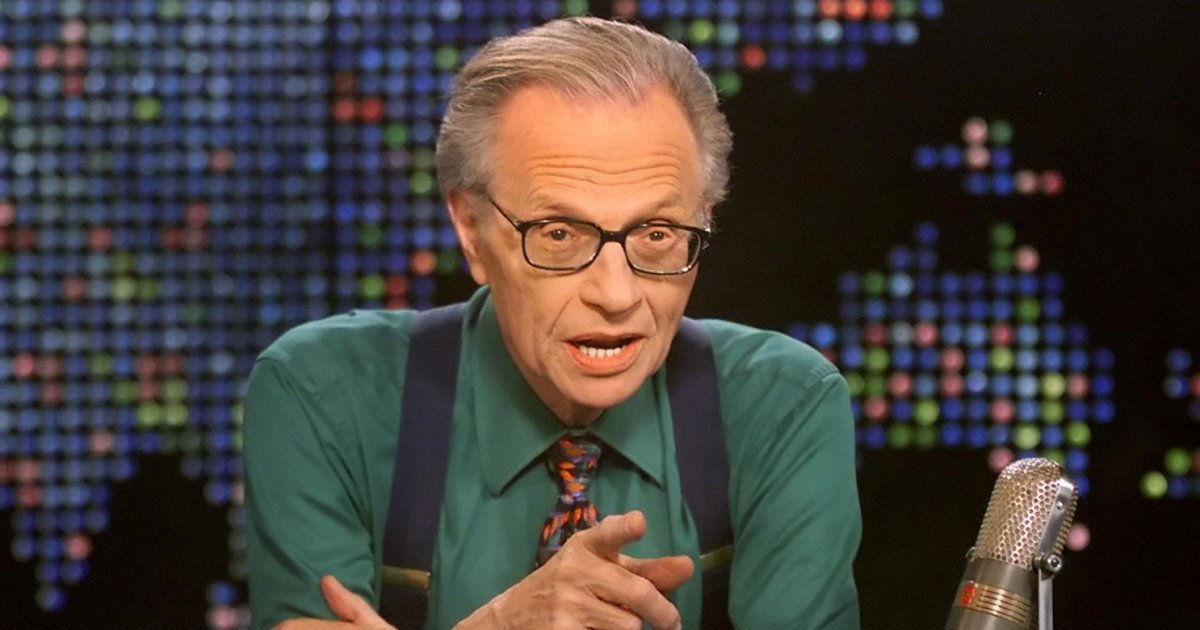Larry King, Hospitalized With COVID-19, Is a Warrior
- Larry King Live talk show host Larry King, 87, is currently in the hospital fighting COVID-19; he reportedly left the ICU on Sunday.
- King survived lung cancer in 2017 and prostate cancer in 1999; he has also suffered a stroke and heart disease in the past.
- For people battling cancer during the COVID-19 pandemic, it’s especially important to exercise safety precautions, due to some cancer treatments leading to an immunocompromised state.
He had previously been treated at Cedars Sinai Medical Center in Los Angeles. And due to safety protocols, it’s being reported by CNN that his three sons are not able to visit him in the hospital.
Read MoreTragically, King lost both his son and daughter in 2020 to a heart attack and lung cancer, respectively. Still, he is a fighter, and we’ll be following along as he battles COVID-19, and wishing for his speedy recovery.
Lung Cancer and COVID-19
While King survived his 2017 lung cancer battle (and his 1999 prostate cancer battle), those who are currently battling lung cancer during COVID-19 face more obstacles than King did four years ago. During the pandemic, all of those with cancer should exercise greater caution for their health, because some cancer treatments may leave a person in an immunocompromised state. This can lead to being more susceptible to the virus.
Dr. Karen Reckamp, the Director of the Division of Medical Oncology at Cedars-Sinai, said in a previous interview, “For our patients with lung cancer, they are not at more risk for developing COVID-19. But because most patients who have lung cancer and have had treatment or are receiving treatment for lung cancer have some compromise to their lung function, we are concerned about the possibility of the COVID-19 developing into pneumonia or respiratory illness that may cause more severe illness for patients who have lung cancer.”
Dr. Reckamp emphasized the need for following safety measures. “At this time, for patients with lung cancer or any type of cancer, still, the best thing we can do is to keep to ourselves and keep to the small groups of people that we are living with, to frequently wash our hands, clean off surfaces in the home, and minimize the amount of time that you are out of the home and interacting,” she said. “For patients who are on treatment, it becomes necessary sometimes to come into a health care setting. And that really should be discussed with their specific physician to determine what the best course would be if a visit is necessary or treatment is necessary.”
What Do People With Lung Cancer Need to Know About COVID-19?
Cancer Screenings Through COVID-19
The COVID-19 pandemic is upending life for everyone who is living through this time. Despite the pandemic, it’s important to continue cancer screenings, experts tell SurvivorNet. Dr. Elizabeth Comen, a Medical Oncologist at Memorial Sloan Kettering Cancer Center said in a previous interview, “So we know that cancer has not gone away just because we’re in the middle of a pandemic. We also know that some elective procedures and potentially preventative care things like colonoscopies, and mammograms, and pap smears may have been put off a couple of months because we wanted to limit the number of people that were coming into the hospital and also keep patients at home unless they really needed to leave.”
“But fortunately, now that we have a little bit of a better hold on how to protect patients, how to disinfect, how to clean in between patients and scatter so that we’re not crowding our waiting rooms, it’s really, really important to remember to talk to your doctor about your screening mammogram or any other preventative tests that you may need.”
It's Important To Continue Cancer Screenings Through COVID-19
Learn more about SurvivorNet's rigorous medical review process.


